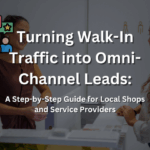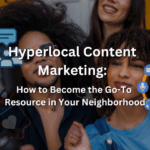You can’t simply take the same piece of content and copy & paste it across all of your company’s social media platforms. Each platform has a specific use and is optimized differently.
Facebook & Google Plus
FB & GP are both engagement-based platforms, meaning they revolve around conversations, comments, replies and sharing. It is communication-based. Although you can post anything in FB and GP (photos, video, text), the emphasis should be in engaging with your fans: dealing with upset/dissatisfied customers and acknowledging happy ones.
Twitter is also an engagement-based platform. However your posts should be much shorter (consider using Bitly URL shortener), concise, to the point. But the real power of Twitter is using its advanced search feature to find anyone who is putting hashtags in their posts relating to your brand or industry, this allows you to keep your finger on the pulse of the web (with regards to that topic), additionally it allows you to chime in any time you want on these topics, and provide helpful information/advice. Therefore Twitter is best used as a communication tool, and not for promotion of offers. You can make posts no these engagement-based platforms about offers but it should be no more than 10% of your posts.
Pinterest is a search-based platform. People go there to find images of things they love. When they find it, they are very much inclined to click and go to whatever site the image originated from. This makes Pinterest a great vehicle for selling. Of course one’s images of Pinterest must be excellent and you should have URLs to take them to where they can buy the product. Or in the case of photos of food, URLs to where they can find the recipe, etc etc. Not all businesses should have a Pinterest. It is up to you and your creativity to see if you can make it fit.
Youtube
Like Pinterest, Youtube is search-based. People don’t go there to converse with each other or talk about your brand. People go to Youtube and Pinterest to find and consume content. Businesses should consider Youtube as their own TV channel. They create a ‘show’, and they add new installments to this show every week. A successful Youtube campaign creates videos that fill a need (helpful DIY, or just entertainment), and is consistent and quite a commitment.






